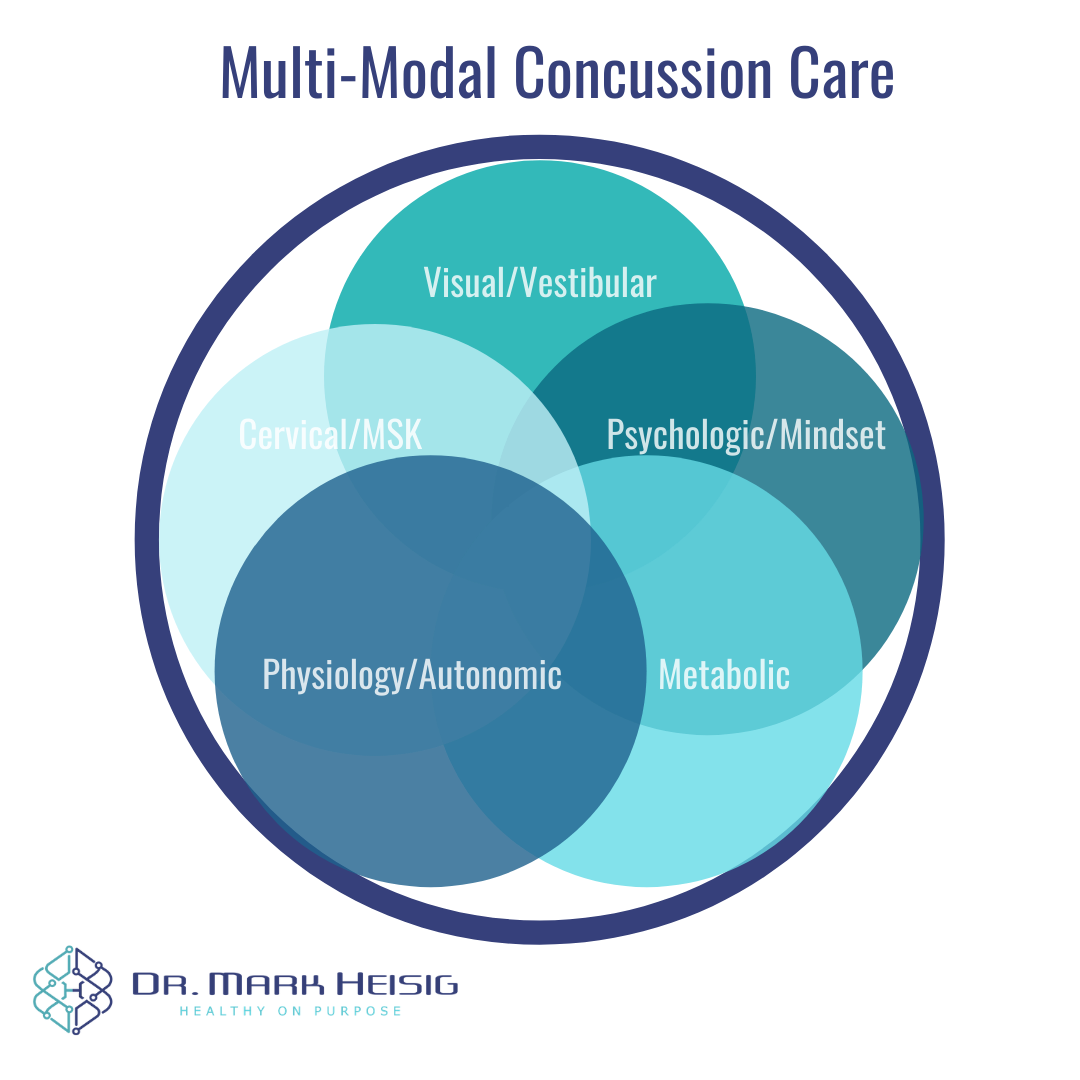Can you take Ibuprofen for a concussion?
Let's keep this quick and simple.
Here's the punchline for the use of Ibuprofen in concussion.
You should not take ANY NEW medicines in the first 24-72hrs.
You should not take an NSAID (e.g., Ibuprofen) for more than 10 days in a row.
#1: You should not take new medicines for new symptoms early after a concussion.
The keyword here is the word "new." Any symptoms that pop up as a result of your concussion are now clues into your conditions and your recovery.
By taking medication to cover up uncomfortable symptoms in the first 24-72hrs, you are possibly covering up life-threatening symptoms. That's not good.
In the first couple of days after a concussion, the idea is to perform symptom-limited activity and make sure that none of your symptoms are getting out of control.
Beyond that, you should be getting in to see a provider for concussion evaluation and management within the first 5 days of your concussion.
#2: You should not take an NSAID for more than 10 days.
This is actually written into the standard of care dosing guidelines, "...do not take longer than 10 days unless directed by physician." This is because the research has only really proven NSAIDs to be effective in the short-term for pain and even recommend, "Doses should be as low as possible, and NSAID treatment should be continued for as short a time as possible." (The problem is that many physicians "direct" longer dosing when they do not know how to treat your pain.)
NSAIDs are "non-steroidal anti-inflammatory drugs," and the reason you need to be cautious with these very common over-the-counter drugs is that they have a couple of notable "black box warnings."
"NSAIDs may cause an increased risk of serious cardiovascular thrombotic events, myocardial infarction, and stroke, which can be fatal. This risk may be increased in patients with cardiovascular disease or risk factors for cardiovascular disease. Ibuprofen is contraindicated for the treatment of peri-operative pain in the setting of coronary artery bypass graft (CABG) surgery. NSAIDs can also cause an increased risk of serious gastrointestinal adverse events especially in the elderly, including bleeding, ulceration, and perforation of the stomach or intestines, which can be fatal." - Dynamed Ibuprofen Monograph
Do you know any Americans with cardiovascular disease or risk factors for cardiovascular disease? (That was a rhetorical question.) It's estimated that adverse events happen in 1 of every 82 people (NNH = 82) taking Ibuprofen.
Are NSAIDs even useful in concussion care?
“Currently, there is limited evidence to support the use of pharmacotherapy. If pharmacotherapy is used, then an important consideration in return to sport is that concussed athletes should not only be free from concussion-related symptoms, but also should not be taking any pharmacological agents/medications that may mask or modify the symptoms of SRC.”
- 2016 Berlin Concussion Consensus Statement
It's a mixed bag... Some research says that there are protective effects and benefits in post-concussion migraine, while other research suggests that chronic NSAID use makes cognitive outcomes of concussion worse.
The same research that suggests benefit in migraine also says:
"In our experience, some patients with new onset or worsening migraine headaches following SRC can be successfully treated with sub-maximal aerobic exercise prescription..." (SRC = Sports-related Concussion)
Ultimate, medications should probably NOT be considered in concussion care.
So, What should you do?
If you're considering reaching for an Ibuprofen after a concussion it's most likely because you're dealing with some sort of head, neck, or shoulder pain.
Headache is one of the most common symptoms in concussion, and it can be shockingly simple to make progress with your headaches. When looking at concussion there are five big buckets that we can divide up recovery into:
Physiologic/Autonomic ("Blood Flow")
Nutritional/Metabolic
Visual/Vestibular
Cervical Spine
Psychological
When dealing with post-traumatic headaches or pains related to your concussion each of these factors may influence your ability to recover and feel like yourself.
Finding a doctor who knows how each of these factors may be playing a role in your unique case can make a world of difference in your recovery.
How you can access cutting-edge concussion care.
At my office in Arizona, I have two main goals:
Make integrative and comprehensive concussion care affordable and accessible.
Provide athletic and brain performance exercises to optimize life, work, and sports performance while minimizing the risk of injury.
Dr. Mark Heisig is a licensed naturopathic doctor with continuing mTBI education from The American Academy of Neurology (AAN), Complete Concussion. Management (CCMI) and The Carrick Institute. His office is located in Scottsdale, AZ.
References:
Ellis, M. J., Leddy, J., & Willer, B. (2016). Multi-disciplinary management of athletes with post-concussion syndrome: an evolving pathophysiological approach. Frontiers in neurology, 7, 136.
Hall, E. D., Vaishnav, R. A., & Mustafa, A. G. (2010). Antioxidant therapies for traumatic brain injury. Neurotherapeutics, 7(1), 51-61.
Kolasinski, S. L., Neogi, T., Hochberg, M. C., Oatis, C., Guyatt, G., Block, J., ... & Gellar, K. (2020). 2019 American College of Rheumatology/Arthritis Foundation guideline for the management of osteoarthritis of the hand, hip, and knee. Arthritis & Rheumatology, 72(2), 220-233.
McCrory, P., Meeuwisse, W., Dvorak, J., Aubry, M., Bailes, J., Broglio, S., ... & Davis, G. A. (2017). Consensus statement on concussion in sport—the 5th international conference on concussion in sport held in Berlin, October 2016. British journal of sports medicine, 51(11), 838-847.
Patterson, Z. R., & Holahan, M. R. (2012). Understanding the neuroinflammatory response following concussion to develop treatment strategies. Frontiers in cellular neuroscience, 6, 58.



